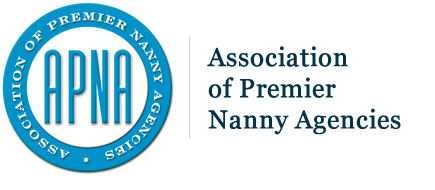Throughout the pandemic, the nanny community has voiced concerns about payment, unemployment, going into work, and more. We’ve gathered answers to a few common questions we’ve seen emerge since lock-downs began in various cities and states. While the information provided here is general, an APNA agency in your area can help with more city or state specific guidance.
Q: As a nanny, do I have to go to work? If not, do I still get paid and for how long? 
A: Each state has their own regulations, including what work is designated as “essential.” While child care has been deemed essential in many states, the exact definition of child care has been left open to interpretation in many cases. At the end of the day, you will have to make a personal judgement call and decide if you feel comfortable going to work. If your employer is requesting that you come in and you choose not to go to work, it is up to your employer whether or not they continue your employment. As long as you are employed, you are required to be paid for the hours that you work and in accordance with your employment contract. Your employer can choose to furlough you if they are unable to keep paying in accordance with your employment agreement, at which point you can file for unemployment benefits.
Q: Can I be fired if I choose not to work for my family during this time? And if so, do they have to abide by the terms for dismissal in my contract?
A: In any “at will” employment situation, you or your employer may choose to terminate the employment at any time within the terms of your contract. Your family can still choose to terminate your employment if you do not come into work during this time. If they do, they should abide by the terms of dismissal in your contract. If a family is unable to pay you, they should formally terminate or furlough you so you can more easily file for unemployment.
If a family does not abide by the employment agreement, it might be because they are unsure of what to do in this situation and may feel like they are in a holding period. Decisions regarding income should be made promptly despite this feeling. Start a conversation with your family regarding your need for either continued compensation or change in employment status. Be sure to approach these conversations with the utmost professionalism on the phone. This is not a conversation to be had over text messages. Some employers worry that they will be negatively impacted by your unemployment filing. Reassure them that this is not the case, and that you have been paying into the unemployment system as a nanny who was paid legally. If you are unable to reach your family for a conversation, or they are not willing to move definitively in either direction, you should go ahead and file for unemployment stating that the family has stopped payments and are unreachable, and thus your contract has been terminated.
Q: What if I get sick while working for my employer — what happens to me, my pay, and my job?
A: You should refer to your contract to see if you are entitled to any paid leave benefits through your employer. You may also be eligible for state sick leave benefits, which vary by location. If you are specifically sickened or exposed to COVID-19, or you are caring for someone who is, you are eligible for two weeks of benefits either at full pay or ⅔ pay in accordance with recent FFCRA legislation. If you’ve used up your paid sick leave, you may apply for unemployment insurance benefits. Once you are feeling better, consult with a medical professional and your family employer to determine when it is safe to return to work. If you contract the illness on-the-job, you may also apply for workers’ compensation insurance benefits through your employer’s policy if they have one.
Q: If my employer gives me the option of living in or leaving my job, what are my options and what should I take into account?
A: If you are considering living-in with your employer, take into consideration the accommodations, the schedule, and how you will set boundaries that will support both you and the family by allowing you to rest and recharge. You should have your own dedicated space and uninterrupted sleep. Keep careful track of your hours to ensure you are being compensated properly. Openly communicate with your employer to determine how many hours they would like you to work so you can help them manage their cost expectations.
Q. I have been using public transportation to get to and from my job, but my employers no longer feel comfortable with me doing so and have asked me to take Ubers to/from work. Who should pay for this?
A: If your employer requires you to take a ride share, they should reimburse you for the travel expenses. Travel costs can add up very quickly, totaling hundreds of dollars per week, so ask to be reimbursed daily.
To learn more about working with an APNA agency, follow us on Facebook and Instagram or sign up for our newsletter!

